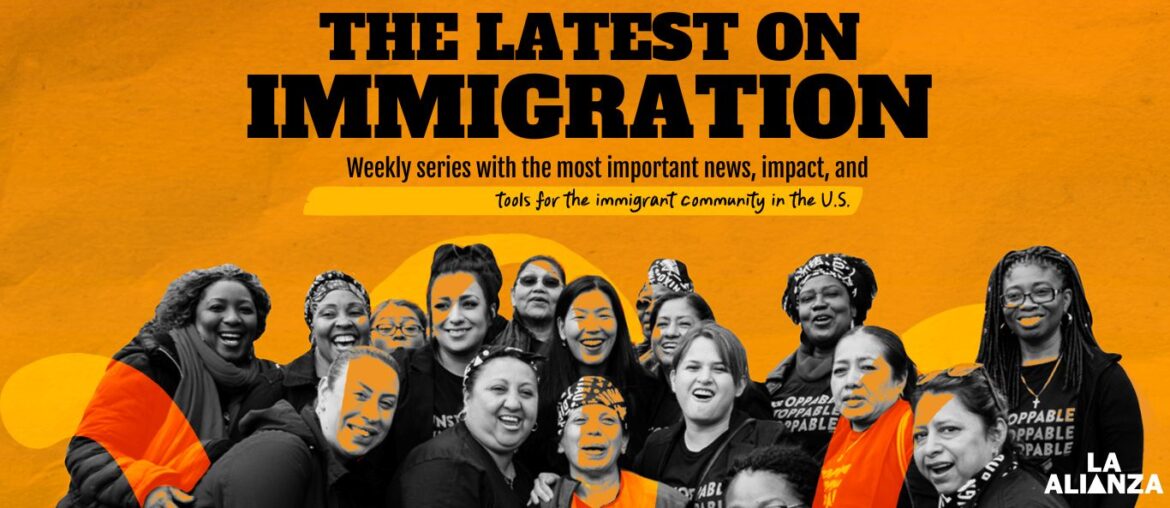In the second half of July, immigration operations intensified, and measures were announced that could affect millions of people. A new $250 fee for non-immigrant visas was announced, arrests of young people with DACA status increased, and transparency in the courts was called into question. At the same time, legislative proposals related to immigration are moving forward, and concerns about conditions in detention centers are growing.
Recent News
New $250 fee raises the cost of visas for tourists, students, and workers
- What we know: The new “Big Beautiful Bill” law, recently signed by the Trump administration, imposes a mandatory additional fee of $250 on those applying for non-immigrant visas to enter the United States as tourists, students, or temporary workers. This “visa integrity fee” does not replace other fees: it is added to the usual cost of the visa and the new amount for the I-94 form, which has increased from $6 to $24. Although details on how refunds will be processed have not yet been provided, it has been mentioned that refunds will only be possible if the traveler strictly complies with the terms of their visa, including not working without authorization and not remaining in the country beyond five days after their expiration date. Those traveling on diplomatic visas (categories A and G) and those entering under the Visa Waiver Program are exempt.
- Why it matters: This fee represents a significant new cost for travelers, students, and temporary workers. In addition, tourism industry organizations warn that the measure could reduce visitor arrivals, just as the United States prepares for key events in 2026, such as the FIFA World Cup and the country’s 250th anniversary celebration.
- Who it affects: Tourists, international students, temporary workers, and anyone applying for a nonimmigrant visa.
Arrests of DACA recipients increase despite temporary protection
- What we know: Multiple recent cases show that individuals protected by the Deferred Action for Childhood Arrivals (DACA) program are being detained and, in some cases, deported. An example is the cases of Erick Hernández, who was arrested after accidentally crossing the border into Mexico while working as a driver, and Javier Díaz Santana, who was detained during a workplace raid in California despite having valid identification and no criminal record. Authorities have said that the program does not grant legal status in the country, allowing its beneficiaries to be arrested and placed in deportation proceedings.
- Why it matters: These arrests signal a shift in focus for the Trump administration, which now includes DACA recipients among those subject to deportation. Advocacy organizations have warned of an increase in arrests of young people in this program known as “dreamers” who, until now, were considered outside the scope of these measures.
- Who it affects: More than 500,000 young people protected by the DACA program who live, study, and work legally in the United States, as well as their families and employers.
Government allows ICE lawyers to conceal their identity in immigration courts
- What we know: In New York immigration courts, judges are allowing government lawyers to withhold their names during public hearings, citing security reasons. This practice coincides with the use of masks by ICE agents during raids.
- Why it matters: American legal tradition requires that judicial proceedings be conducted in public and transparent hearings. Cassandra Burke Robertson, a law professor specializing in professional ethics, warns that allowing government attorneys to conceal their identities during immigration hearings breaks with centuries of legal tradition, reduces accountability, and diminishes the ability of citizens to monitor the immigration court system.
- Who it affects: People in deportation proceedings, legal advocates, human rights observers, and the general public, who lose access to an open and transparent judicial process.
Care work in crisis due to immigration cuts
- What we know: Senior care centers and home care agencies are facing a severe staff shortage, exacerbated by the elimination of protections such as TPS and humanitarian parole. In places like Atlanta and Boca Raton, employers report losing workers with legal status or absenteeism due to fear of raids, even among those with valid permits. In some residences, dozens of workers are expected to leave in the coming weeks. Managers say those positions will be “very difficult, if not impossible, to replace.”
- Why it matters: More than 25% of the approximately 4 million workers in the direct care sector in the United States are immigrants. In home care, the proportion rises to 32%. New immigration policies and widespread fear are deepening a staffing crisis in a sector that was already facing structural challenges. It is estimated that 820,000 new workers will be needed by 2032.
- Who it affects: Older adults who require daily care, families who depend on these services, and care centers that face increasing difficulties in filling key positions.
Developing Stories and Local News
These are news items and legislation that, to date, are still in the process of being approved or developed. Details may change:
- Requests to close Florida’s ‘Alligator Alcatraz’ detention center are increasing: Organizations have reported that detainees are living in inhumane conditions, including cages with sewage, lack of medical care, and overcrowding. At least six people have been hospitalized. The president of Mexico confirmed that 14 Mexicans are being held there.
- Deportation flights begin from the ‘Alligator Alcatraz’ detention center: Governor DeSantis confirmed that at least 100 people have been deported from the new ‘Alligator Alcatraz’ facility and hundreds more transferred to other centers. The facility could double its capacity to 4,000 people.
- Senator Alex Padilla introduces a proposal to create a new path to permanent residency: The bill would amend the 1929 Registration Act to allow immigrants who have lived in the US for at least seven years, with no criminal record, to apply for a green card. It is estimated that more than 8 million people could benefit.
- Federal government sues New York City over sanctuary laws: The Trump administration filed a lawsuit to overturn rules limiting cooperation with ICE, arguing that they interfere with federal law. Mayor Eric Adams has said that those laws should be reviewed, but he defends their essence.
- Government builds massive detention center in Texas: A Department of Defense contract revealed the construction of a center for 5,000 people in El Paso. The project is in response to the federal plan to increase deportations, with an approved budget of $45 billion for detention alone.
- USCIS plans to increase the difficulty of the citizenship exam: The new director of USCIS, Joseph Edlow, confirmed that they are seeking to increase the difficulty of the civics exam, returning to a model imposed in 2020. The exam could once again require 12 correct answers out of 20 questions.
Resources
- Visit the National Domestic Workers Alliance’s “Know Your Rights” platform, which includes immigrant rights, immigration options, a legal aid directory, and more. To access it, visit ndwa.us/immigrant
Note: The National Domestic Workers Alliance is the partner organization of La Alianza - Learn how to recognize fake news about immigration and avoid misinformation with this guide: How to Identify Fake News About Immigration and Avoid Misinformation
Legal Disclaimer: This information is provided for educational purposes and does not constitute legal advice. It is recommended that you consult with an immigration attorney to assess your specific situation.


